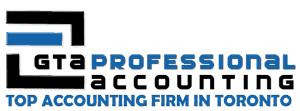Click here to get this post in PDF

Be it personal or corporate tax services, GTA Accounting’s bookkeeping services are here to guide you through the process of maintaining an organized and easy-to-access bookkeeping system. To ensure your business’ success and protection through proper bookkeeping, the following list will do exactly just that, let’s start:
Daily Accounting Tasks:
1: Maintaining cash position:
- It is incumbent to ensure you have sufficient cash at hand at the beginning of each day. Having knowledge of how much you pay and how much you receive on a weekly/monthly basis is heavily important in order to gauge how much cash to start with daily.
Weekly:
2: Keep a record of transactions:
- Keep a record of transactions from billing customers to paying vendors and so on. It is advisable to keep detailed weekly records of such transactions, either manually through excel or by using accounting software like Quickbook.
3: Documents and File Receipts:
- Keeping copies of all invoices sent, cash payments, cash receipts, and credit card statements. Creating a file alphabetically sorting your vendors will make access to records much easier. For payroll, create a file that is sorted by payroll date and a bank statement file sorted by month. One final piece of advice here is to keep all receipts filed and sorted by category before tax season. Organization is key.
4: Unpaid vendor bills:
- Keep a record for unpaid vendors which includes billing dates, amounts owed, and when payment is due, then, of course, paying them once cash is available.
5: Pay vendors:
- Avoid late fees and maintain good faith with your suppliers by paying them on time. It is also necessary to keep a record of online or check payments to vendors, a process made easier using our bookkeeping services.
6: Send and Prepare Invoices:
- Most invoices are generally due within 30 days hence the ‘Net 30’ at the bottom of your invoice. Keeping a due date will help avoid unforeseen hiccups as it is tough to determine future monthly revenue.
7: Projected Cash Flow:
- Making a calculated and accurate projection of your weekly/monthly income will allow you to keep aside the necessary funds to pay employees, suppliers, & pay bills. A simple statement showing the current cash position, expected cash receipts for the upcoming week/month, and expected cash payments for the coming week/month, will allow you to make such a crucial and informed decision.
Monthly:
8: Keep Your Business Checkbook Balanced:
- Reconcile your bank account. Ensure that all the business transactions are accurate and that you are working with correct cash flow positions on a monthly basis. As such, reconciling your cash allows you to discover and correct errors in time.
9: Review Past-Due, or Aged Receivables:
- Keep a column specifically for aged invoices with the number of days that it’s been due. Sending out a reminder for overdue statements to customers or clients at the beginning of each month is highly advisable. As such, at the end of your fiscal year, you can determine what receivables be sent to collections and which to write off as a deduction.
10: Analyze Inventory Status:
- Keeping track of product movability is necessary for avoiding being neither short-handed nor overloaded. Keep track of which products move fast and which move slow, then determine a plan to either markdown or write off slow-selling products.
11: Review Payroll and Approve Tax Payments:
- It is important to meet payroll tax requirements on a federal and provincial level, therefore withholding, reporting, and depositing applicable social security, healthcare, income tax, and disability taxes to the appropriate agency on the required dates.
12: Review of Actual Profit & Loss vs. Budget & vs. Prior Years:
- Your income statement tells you how much you’ve earned and how much you’ve spent. Measure that against your monthly budget, compare your actual numbers to the planned numbers, see where spending is high or low, then make necessary adjustments.
13: Review of Month-End Balance Sheet vs. Prior Period:
- Compare a current balance sheet versus one from an earlier date, this will allow you to see what significantly went up and what went down and understand why. This will help manage and review your assets and liabilities.
Quarterly:
14: Prepare/Review Revised Annual Profit and Loss Estimate:
- Here you evaluate how much you are making, the difference between revenues and expenses, how profits are being spent, find out what causes changes, identify trouble spots, and make necessary adjustments to improve sales and margins.
15: Review Quarterly Payroll Reports and Make Payments:
- It is encouraged and required by law to make payroll reports and any remaining quarterly payments. Your payroll service provider must complete these reports and file them, but ultimately it is your job to review and ensure their reasonability.
16: Review of Sales Tax and Make Quarterly Payments:
- Avoid serious penalties by complying with state laws requiring sales tax.
Annual:
17: Review Past-Due Receivables:
- Here you check past due receivables and make decisions if customers will pay or not, and whether to write them off as a deductible or send it to a collection agency.
18: Review Inventory:
- Review current inventory to determine the value of unsold items. Unsold inventory will translate as a deduction on your year-end taxes. However, not writing down unsold inventory will overstate your inventory balance and cause you to pay additional taxes that you don’t owe.
19: Review and Approve Full-Year Financial Reports and Tax Returns:
- Come tax time, ensure that you carefully review your business’ full-year financial reports before handing them out to your Tax accountant Toronto. Always ensure your full-year financial reports are accurate before signing your return because if the CRA decides to audit, it will be coming after you, not the accountant.
20: Fill Out CRA Forms T4:
- The CRA requires you to have the T4 slips sent to the people who worked for you during that year by the end of February.
You may also like: 5 Bookkeeping Tips For Small Businesses
Get in Touch:

GTA Accounting, 3410 Sheppard Ave E #304 , Scarborough, ON M1T 3K4

[…] You may also like: Small Business Accounting Checklist: 20 Key Things to Do and When to Do Them […]